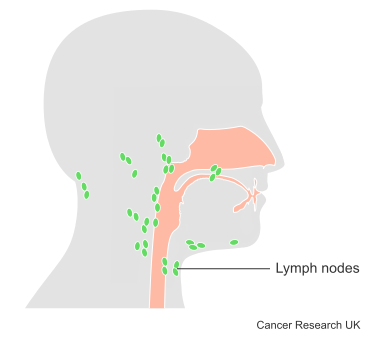
Conditions Identified Through Lymph Node Ultrasound
Lymph node ultrasound is a non-invasive imaging technique used to evaluate the structure and function of lymph nodes. Utilizing high-frequency sound waves, this method provides detailed images of lymph nodes and surrounding tissues, helping healthcare providers diagnose a variety of conditions, from infections to cancers. This guide delves into the key conditions that can be identified through lymph node ultrasound, explaining their symptoms, causes, and ultrasound findings.
Infections
1. Lymphadenitis
Description: Lymphadenitis refers to the inflammation of lymph nodes, typically caused by an infection. This condition can affect one or more lymph nodes and is usually a response to a bacterial, viral, fungal, or parasitic infection.
Causes:
- Bacterial Infections: Commonly caused by bacteria such as Streptococcus or Staphylococcus.
- Viral Infections: Including Epstein-Barr virus (which causes mononucleosis), HIV, and other viral infections.
- Fungal Infections: Less common but can occur in individuals with weakened immune systems.
- Parasitic Infections: Rare in developed countries but can cause lymphadenitis.
Symptoms:
- Swollen, tender lymph nodes
- Redness and warmth over the affected area
- Fever and chills
- General malaise or feeling unwell
Ultrasound Findings:
- Enlarged lymph nodes
- Hypoechoic (darker) appearance due to increased fluid content
- Possible abscess formation, which appears as a collection of fluid within the lymph node
2. Tuberculosis (TB)
Description: Tuberculosis is a bacterial infection caused by Mycobacterium tuberculosis. When it affects the lymph nodes, particularly in the neck, it is known as cervical lymphadenitis or scrofula.
Symptoms:
- Swollen, painless lymph nodes in the neck
- Night sweats
- Persistent fever
- Unexplained weight loss
Ultrasound Findings:
- Matted lymph nodes (nodes clumped together)
- Caseation necrosis (central areas of the nodes appear hypoechoic)
- Irregular borders and sometimes calcification within the lymph nodes
Inflammatory Diseases
1. Sarcoidosis
Description: Sarcoidosis is an inflammatory disease characterized by the formation of granulomas (small clumps of inflammatory cells) in various organs, including the lymph nodes.
Symptoms:
- Swollen lymph nodes, especially in the chest and neck
- Shortness of breath
- Persistent cough
- Fatigue and general weakness
Ultrasound Findings:
- Enlarged lymph nodes
- Homogeneous echotexture (uniform appearance)
- Increased vascularity (more blood flow), often detected using Doppler ultrasound
2. Rheumatoid Arthritis (RA)
Description: Rheumatoid arthritis is an autoimmune disease that primarily affects the joints but can also cause systemic inflammation, including lymph node enlargement.
Symptoms:
- Swollen, painful joints
- Fatigue and fever
- Enlarged lymph nodes
- Morning stiffness lasting more than an hour
Ultrasound Findings:
- Enlarged lymph nodes
- Hypoechoic areas due to inflammation
- Increased blood flow on Doppler ultrasound, indicating active inflammation
Cancer
1. Lymphoma
Description: Lymphoma is a type of cancer that originates in the lymphatic system. There are two main types: Hodgkin lymphoma and non-Hodgkin lymphoma.
Symptoms:
- Painless swelling of lymph nodes, often in the neck, armpits, or groin
- Fever and night sweats
- Unexplained weight loss
- Fatigue
Ultrasound Findings:
- Enlarged lymph nodes
- Hypoechoic or mixed echogenicity (areas of different densities)
- Rounded shape (less oval than normal lymph nodes)
- Loss of fatty hilum (the central area of the node appears darker)
2. Metastatic Cancer
Description: Metastatic cancer refers to cancer that has spread from its original site to the lymph nodes.
Symptoms:
- Swollen, firm lymph nodes
- Symptoms related to the primary cancer site
- Unexplained weight loss
- Fatigue and weakness
Ultrasound Findings:
- Enlarged lymph nodes
- Irregular shape and margins
- Hypoechoic areas with possible necrosis (dead tissue)
- Increased vascularity, often indicating aggressive growth
3. Breast Cancer
Description: Breast cancer can spread to the lymph nodes, particularly those in the axilla (armpit). Lymph node involvement often indicates a more advanced stage of the disease.
Symptoms:
- Lump in the breast or underarm
- Changes in breast shape or size
- Nipple discharge or inversion
- Swollen axillary lymph nodes
Ultrasound Findings:
- Enlarged, rounded lymph nodes
- Cortical thickening (thickening of the outer layer of the lymph node)
- Loss of the fatty hilum
- Increased blood flow, indicating the potential spread of cancer
Other Conditions
1. Castleman Disease
Description: Castleman disease is a rare disorder that involves an overgrowth of cells in the lymph nodes, which can lead to large lymph nodes and other symptoms.
Symptoms:
- Enlarged lymph nodes, often in the neck, armpits, or groin
- Fever and night sweats
- Fatigue and weakness
- Weight loss
Ultrasound Findings:
- Enlarged lymph nodes
- Homogeneous or heterogeneous echotexture
- Increased blood flow on Doppler ultrasound
2. Kikuchi-Fujimoto Disease
Description: Kikuchi-Fujimoto disease is a rare, benign condition characterized by lymphadenopathy (swollen lymph nodes), typically in the neck.
Symptoms:
- Swollen, tender lymph nodes, usually in the neck
- Fever and night sweats
- Fatigue and malaise
Ultrasound Findings:
- Enlarged lymph nodes
- Hypoechoic areas within the lymph nodes
- Sometimes necrotic areas indicating cell death
Conclusion
Lymph node ultrasound is an essential diagnostic tool for evaluating a wide range of conditions, including infections, inflammatory diseases, and cancers. It provides detailed images that help healthcare providers diagnose and monitor these conditions effectively. If you notice any persistent swelling or lumps in your lymph nodes, it is crucial to seek medical evaluation for proper diagnosis and treatment.
For more information or to schedule a lymph node ultrasound, please contact London Private Ultrasound. Visit our website at www.londonsono.com, call us at 02071013377, or email us at [email protected]. Take proactive steps towards maintaining your health today.

